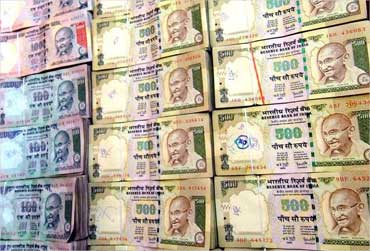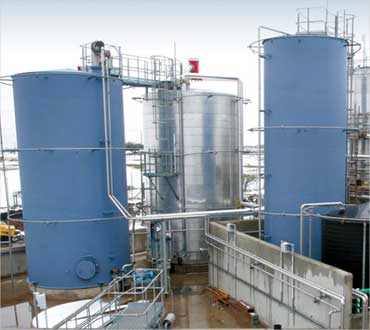
Employees in India are expected to see a salary hike of 12.9 per cent this year, among the highest in the world, as industries are benefiting from the country's robust economic growth, according to Aon Hewitt.
Led by engineering services sector, the projected jump of 12.9 per cent in salaries for this year is higher than the actual increase of 11.7 per cent seen in 2010.
Global HR consultancy group Aon Hewitt on Tuesday said India is likely to see the highest pay hike in the Asia-Pacific region, followed by China (9 per cent) and Philippines (7 per cent).
"India's salary rise would also be among the highest in the world... companies are growing fast and demand is rising due to good economic growth," Aon Hewitt's India practice leader (compensation) Nitin Sethi told reporters in New Delhi on Tuesday.
...

Among the sectors, engineering services are expected to witness the maximum hike of 14.4 per cent while it would be 14 per cent each in automotive and energy (oil/gas/power) segments.
Information technology and outsourcing (ITES) sectors are projected to see a salary increase of 12 per cent and 11.9 per cent, respectively.
Going by the Aon Hewitt's Annual Salary Increase Survey, media industry would witness a hike of 13.4 per cent in 2011.The findings are based on a survey of 531 organisations conducted over December 2010 to January 2011.
...

Sethi noted that double-digit salary increases would continue for the next couple of years and is expected to be "12-15 per cent" across industries.
"The positive growth estimate is owing to sustained increase in domestic consumption, investment in infrastructure, continued momentum in services and efforts towards fiscal consolidation," Aon Hewitt said.
On the other hand, Sethi said that attrition is also at high levels, touching 18.9 per cent last year.
Pharmaceuticals, telecommunication and retail have been consistent performers over the past two years with salary projection for 2011 within the range of 12.4 per cent - 13.2 per cent.
Increase in disposable incomes, along with advances in technology, increase in mergers and acquisitions, and anticipation for relaxation in FDI norms will induce further buoyancy in these sectors.
...

Junior management, professional, supervisory staff who have two to seven years of work experience are attracting the maximum salary increase budget of 12.4 per cent as actual increase for 2010 and projections of 13.3 per cent for 2011, vis-a-vis the middle and senior management cadre.
This employee category forms the majority of the employee base, and they have the most job opportunities across sectors and locations.
The general/entry staff are likely to receive an salary increase of 12.7 per cent, which "can be attributed to high turnover rates coupled with high inflation rates pushing up the cost of living for these levels," Aon Hewitt said.
As per the survey, variable pay as part of total compensation is increasing, as entities are tying a greater percentage of salary to individual and overall company performance.
...

Other emerging trends
India's private sector focuses on cost prudence and rewarding true performance, which is similar to the government of India's focus on fiscal consolidation in 2011.
As a result, spending on variable pay as part of total compensation has been steadily growing over the past decade.
This indicates a shift in overall pay philosophy as employers are tying a greater percentage of employees' pay to individual and overall company performance.
Top/senior management see 22 per cent of their total compensation as variable (up from 16 per cent in 2001) and even the lowest rung entry staff gets approximately 11 per cent of their total compensation (up from 7 per cent in 2001) as variable pay.